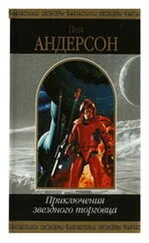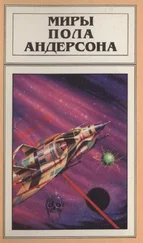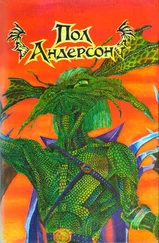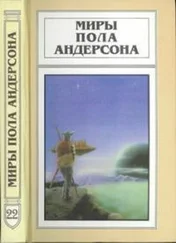Пол Андерсон - Explorations
Здесь есть возможность читать онлайн «Пол Андерсон - Explorations» весь текст электронной книги совершенно бесплатно (целиком полную версию без сокращений). В некоторых случаях можно слушать аудио, скачать через торрент в формате fb2 и присутствует краткое содержание. Год выпуска: 1981, Жанр: Фантастика и фэнтези, на английском языке. Описание произведения, (предисловие) а так же отзывы посетителей доступны на портале библиотеки ЛибКат.
- Название:Explorations
- Автор:
- Жанр:
- Год:1981
- ISBN:нет данных
- Рейтинг книги:5 / 5. Голосов: 1
-
Избранное:Добавить в избранное
- Отзывы:
-
Ваша оценка:
- 100
- 1
- 2
- 3
- 4
- 5
Explorations: краткое содержание, описание и аннотация
Предлагаем к чтению аннотацию, описание, краткое содержание или предисловие (зависит от того, что написал сам автор книги «Explorations»). Если вы не нашли необходимую информацию о книге — напишите в комментариях, мы постараемся отыскать её.
Explorations — читать онлайн бесплатно полную книгу (весь текст) целиком
Ниже представлен текст книги, разбитый по страницам. Система сохранения места последней прочитанной страницы, позволяет с удобством читать онлайн бесплатно книгу «Explorations», без необходимости каждый раз заново искать на чём Вы остановились. Поставьте закладку, и сможете в любой момент перейти на страницу, на которой закончили чтение.
Интервал:
Закладка:
It's not the same kind of fire as Sol. It's cooler, yellower, something autumnal about it, even though it will outlive man's home star. I don't suppose the unlikenesses will appear so great to human eyes. I know the entire spectrum. {How
THE VOORTREKKERS
155
much more does Joel sense! To me, every sun is a once-in-the-universe individual; to him, every sun-spot is.) The organic body/mind is both more general and more specific than this… like me visit-vis Joel. (I remember, I remember: striding the Delphi road, muscle-play, boot-scrunch, spilling sunlight and baking warmth, bees at hum through wild thyme and rosemary, on my upper lip a taste of sweat, and that tremendous plunge down to the valley where Oedipus met his father… Machine, I would not experience it in quite those terms. There would be too many other radiations, forces, shifts and subtleties which Oedipus never felt. But would it be less beautiful? Is a deaf man, suddenly cured, less alive because afterward his mind gives less time to his eyes?)
Well, we'll soon know how living flesh experiences the living planet of Tau Ceti.
It isn't the infinite blue and white of Earth. It has a greenish tinge, equally clear and marvelous, and two moons for the lovers whom I, sentimental old crone, keep imagining. The aliennesses may yet prove lethal. But Joel said, in his dear dry style:
"The latest readouts convince me. The tropics are a shirt-sleeve environment." His mind grinned, I am sure, as formerly his face did. "Or a bare-ass environment. That remains to be seen. I'm certain, however, organic bodies can manage better down there than any of yours or mine."
Was I the one who continued to hesitate because I had been the one more eager for this? A kind of fear chilled me. "We already know they can't find everything they need to eat, in that biochemistry—"
"By the same token," the ship rejninded, not from intellectual but emotional necessity, "nothing local, like germs, can make a lunch off them. The survival odds are excellent," give the
156
EXPLORATIONS
concentrated dietary supplements, tools, and the rest of what we have for them. "Good Lord, Korene, you could get smashed in a rock storm, prospecting some wretched asteroid, or I could run into too much radiation for the screens and have my brain burned out. Or whatever. Do we mind?"
"No," I whispered. "Not unendurably."
"So they won't."
"True. I shouldn't let my conscience make a coward of me. Let's go right ahead."
After all, when I brought children into the world, long ago, I knew they might be given straight over to horror; or it might take them later on; or at best, they would be born to trouble as the sparks fly upward, and in an astonishingly few decades be dust. Yet I never took from them, while they lay innocent in my womb, their chance at life.
Thus Joel and I are bringing forth the children who will be ourselves.
He wheels like another moon around the world, and his sensors drink of it and his mind reasons about it. I, within him, send forth my auxiliary bodies to explore its air and waters and lands; through the laser channels, mine are their labors, triumphs, and — twice — deaths. But such things have become just a part of our existence, like the jobs from which we hurried home every day. (Though here job and home go on concurrently.) The rest of us, the most of us, is linked in those circuits that guide our children into being.
We share, we are a smile-pattern down the waves and wires, remembering how chaste the agency spokesman made it sound, in that first famous interview. Joel and I had scarcely met then, and followed it separately on television. He told me afterward that, having heard the spiels a thousand times before, both pro and con, he'd rather have gone fishing.
THEVOORTREKKERS
157
(Neither was especially likable, the commentator smalt and waspish, the spokesman large and Sincere. The latter directed his fleshy countenance at the camera and said:
"Let me summarize, please. I know it's familiar to you in the audience, but I want to spell out our problem.
"In the state of the art, we can send small spacecraft to the nearer stars, and back, at an average speed of about one-fifth light's. That means twenty-odd years to reach Alpha Centauri, the closest; and then there's the return trip; and, naturally, a manned expedition would make no sense unless it was prepared to spend a comparable time on the spot, learning those countless things which unmanned probes cannot. The trouble is, when I say small spacecraft, I mean small. Huge propulsion units but minimal hull and payload. No room or mass to spare for the protection and life support that even a single human would require; not to mention the fact that confinement and monotony would soon drive a crew insane."
"What about suspended animation?" asked the commentator.
The spokesman shook his head. "No, sir. Aside from the bulkiness of the equipment, radiation leakage would destroy too many cells en route. We can barely provide shielding for those essential items which are vulnerable." He beamed. "So we've got a choice. Either we stay with our inadequate probes, or we go over to the system being proposed."
"Or we abandon the whole boondoggle and spend the money on something useful," the commentator said.
The spokesman gave him a trained look of pained patience and replied: "The desirability of space exploration is a separate question, that I'll
158
EXPLORATIONS
be glad to take up with you later. It you please, for the time being let's stick to the mechanics of it."
" 'Mechanics' may be a very good word, sir," the commentator insinuated. "Turning human beings into robots. Not exactly like Columbus, is it? Though I grant you, thinkers always did point out how machine-like the astronauts were… and are."
"If you please," the spokesman repeated, "value judgments aside, who's talking about making robots out of humans? Brains transplanted into machinery? Come! If a body couldn't survive the trip, why imagine that a brain in a tank might? No, we'll simply employ ultra-sophisticated computer-sensor-effector systems."
"With human minds."
"With human psychoneural patterns mapped in, sir. That is all." Smugly: "True, that's a mighty big 'all.' The pattern of an individual is complex beyond imagination, and dynamic rather than static; our math boys call it n-dimensional. We will have to develop methods for scanning it without harm to the subject, recording it, and transferring it to a different matrix, whether that matrix be photonic-electronic or molecular-organic." Drawing breath, then portentously: "Consider the benefits, right here on Earth, of having such a capability."
"I don't know about that," said the commentator. "Maybe you could plant a copy of my personality somewhere else; but I'd go on in this same old body, wouldn't I?"
"It would hardly be your exact personality anyhow," admitted the spokesman. "The particular matrix would… um… determine so much of the functioning. The important thing, from the viewpoint of extrasolar exploration, is that this will give us machines which are not mere robots, but which have such human qualities as
THE VOORTREKKERS
159
motivation and self-programming.
"At the same time, they'll have the advantages of robots. For example, they can be switched off in transit; they won't experience those empty years between stars; they'll arrive sane."
"Some of us wonder if they'll have departed sane. But look," the commentator challenged, "if your machines that you imagine you can program to be people, if they're that good, then why have them manufacture artificial flesh-and-blood people at the end of a trip?"
"Only where circumstances justify it," said the spokesman. "Under some conditions, organic bodies will be preferable. Testing the habitability of a planet is just the most obvious possibility. Consider how your body heals its own wounds. In numerous respects it's actually stronger, more durable, than metal or plastic."
Читать дальшеИнтервал:
Закладка:
Похожие книги на «Explorations»
Представляем Вашему вниманию похожие книги на «Explorations» списком для выбора. Мы отобрали схожую по названию и смыслу литературу в надежде предоставить читателям больше вариантов отыскать новые, интересные, ещё непрочитанные произведения.
Обсуждение, отзывы о книге «Explorations» и просто собственные мнения читателей. Оставьте ваши комментарии, напишите, что Вы думаете о произведении, его смысле или главных героях. Укажите что конкретно понравилось, а что нет, и почему Вы так считаете.












